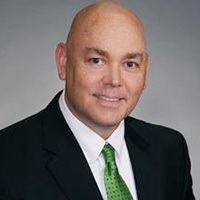Oberlin Misdemeanor Lawyer, Louisiana
Sponsored Law Firm
-
 x
x

Click For More Info:
-
Babcock Trial Lawyers
10101 Siegen Ln #3-C Baton Rouge, LA 70810» view mapCriminal Defense We Want Your Injury Claim PAID NOW!
At Babcock Trial Lawyers, we work for our clients, maintaining our reputation of excellence as criminal defense & personal injury lawyers in Baton Rouge.
225-500-5000
Not enough matches for Oberlin Misdemeanor lawyer.
Below are all Oberlin Criminal lawyers.
David Green
✓ VERIFIED *Status is reviewed annually. For latest information visit hereDavid Green is a graduate of McNeese State University and has a strong background in law enforcement and criminal law. While earning his undergraduat... (more)
Wesley Ryan Bailey
✓ VERIFIED *Status is reviewed annually. For latest information visit hereWesley Bailey is a practicing lawyer in the state of Louisiana specializing in Divorce & Family Law. More about Wes Bailey: Managing Attorney for so... (more)
Christopher L Trahan
✓ VERIFIED *Status is reviewed annually. For latest information visit hereYou want a competent lawyer you can talk to. Call us and speak to a lawyer. We have more than two decades experience dealing with all jurisdictions ... (more)
Jamie B. Bice
FREE CONSULTATION
CONTACTP. David Olney
FREE CONSULTATION
CONTACTDonald D. Cleveland
FREE CONSULTATION
CONTACTWarren D. Rush
FREE CONSULTATION
CONTACT Stephen Babcock Baton Rouge, LA
Stephen Babcock Baton Rouge, LA Practice AreasExpertise
Practice AreasExpertise


